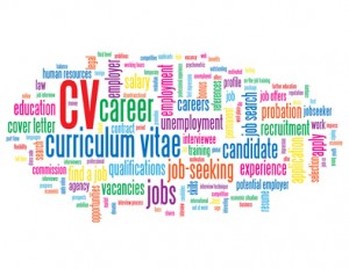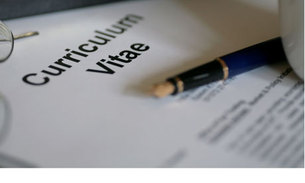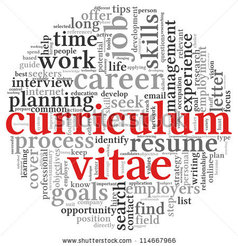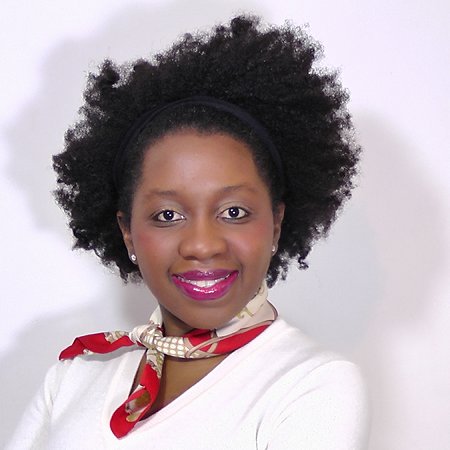 So far I've given you 25 tips on how too write a good CV. These are my next 9 Tips – if you've read all articles in this series, you're still in the running towards becoming Malawi's next best CV writer. 26. Use a descriptive title Especially if you are applying as an experienced hire, under education and work experience, make sure the job titles are very specific and that they sell you. Specific titles allow the recruiter to very quickly decide if you have the necessary qualifications and experiences for the job. Bad title: Analyst at Bank X Good title: Analyst on Energy Team in Investment Banking Division at Bank X 27. List all the positions you held in one firm separately If you’ve been with one company for a long time, it’s likely that your title and/or job function has changed over the years. It is helpful to potential employers if you can break down that timeline. Segmenting the information gives an employer useful insight into the nature of your experience. 28. Lacking in work experience? Focus on skills and qualities. When you are just starting out, you may well not have any work experience. However, if you have time, get some relevant work experience. Even unpaid work e.g. volunteering at a charity shop or at an Olympics or other event is great to have on your resume/CV. 29. Don’t list qualities It doesn’t matter if you say you’re a great team player or have fantastic communication or leadership skills unless you can back that up. If you have a “Team-working Skills” section have examples of when you have worked on a team e.g. in sport. If you have an “Organisational Skills” section have examples of when you organised an event. Always validate skills and qualities with examples. 30. Include Positions of Responsibility Positions of responsibility e.g. being Head Girl, Head of House or Captain reveal that you have experience in being a leader and managing people. Indeed, they might also reveal that your are popular and personable – more often than not, to be Head Girl, Head Boy or Head of House teachers or the whole student body have to vote for you. If you’re still in school or university and there’s time, try to attain a position of responsibility in some club or society. 31. Include Achievements Achievements reveal very different information to Positions of Responsibility, they show you are a goal-setter and an achiever in either sport, the arts or academics. This in turn reveals you’re a hard-worker, persevering and have initiative. Getting an award for something is not usually easy, it requires some amount of grit and determination. 32. Be careful about including interests and hobbies. Some interests open you up to being judged harshly. Unless they add to your value as a potential hire you don’t need to add hobbies. At times including a hobby may relay useful insight, for instance, if you’re applying for a role where a lot of reading will be required e.g. reading legal or other documents, then mentioning that you’re a prolific reader and that you can read a 300-paged book in one afternoon is of value. However, just adding “reading” as a hobby is useless and for many people isn't even true! These are the hobbies that were included on a CV I recently received: “Reading novels, listening to the radio, chatting with friends and sharing Gospel words”. I'm sure you too are laughing at the sheer ridiculousness of this list. No one wants to hire someone who enjoys chatting as a hobby because they are likely to waste time at the office instead of getting work done; as for listening to the radio how does this sell anyone? Everyone listens to the radio – it's what you listen to that matters; reading novels is also neither here nor there – hobbies such as reading can be mentioned in an interview and if they are going to be mentioned they need to be backed up with examples of books that you have read. Novel reading won't impress most employers but business books will. As for sharing the Gospel that's only relevant if you are applying for a job as a pastor or some other such thing. Importantly, giving too much personal information opens you up for discrimination. For instance, if your employer is Muslim and you are a Christian fanatic they probably won't want to hire you. Religion is a very personal, divisive and job-irrelevant piece of data it shouldn't be on a CV. “Success depends upon previous preparation, and without such preparation there is sure to be failure.” Confucius
0 Comments
 This week I will add 10 tips to last week's 15. If you've read all three articles in the series you're firmly in the running to become Malawi's next best CV writer (after me). 16. Don’t try to be too different, no fancy stuff Take it from someone that’s had to recruit before. Above and beyond looking clear and smart, there is nothing more annoying than someone who tries to stand out by a) adding graphics to their resume/CV or b) presenting the information in a totally different way to the standard. If a recruiter has a pile of 50+ CVs to get through (and a lot of recruiters nowadays have many more), it is a lot easier to get the work done when people follow the usual order of things. Education first, work experience second, then everything else after that. When I want to hire, I just want someone that can do the job and having a cool CV isn’t going to differentiate you. If anything, some might assume you are trying to compensate for a lack of something. 17. Format matters Some CVs look downright shoddy. A recruiter who has a large pile of CVs to get through will not waste their time on someone that couldn’t bother to neaten their CV up. 18. Show dates clearly Place dates either on the left or the right so it’s easy to follow your education and work experience path. Merging it all together with your bullet points is a) messy and b) can suggest you are trying to hide career gaps. 19. Date formats should be consistent Generally, if I just have a year, I write the full year. If I have months and the year, I shorten the year because the CV starts looking clogged up. Good format for year: 2012 Bad format for year: ‘12 Good format for month and year: Sep-12 Bad format for month and year: September 2012 (it takes up too much space) 20. No pictures Unless the employer asks for it, you don’t need to have a photograph of yourself on your CV. If you’re applying for a modelling job then your portfolio of pictures will be necessary as it is obviously a very necessary feature of the job. 21. General rule: most recent information goes first Put the most recent education and the most recent work experience first. So, under education, university comes first and then secondary or high school information. Under work experience, the most recent work experience is put first. 22. Relevance rule: most job-relevant information goes first If the most recent work experience is not the most relevant, place the most relevant work experience first. 23. Use the correct spelling Applying for a job in Malawi or the UK? Then use British English. Applying for a job in the US? Then use American English. By the way, to the British it’s a CV; to Americans it’s a resume. 24. No typos please It will definitely reduce your chances of getting a job. If I’m recruiting and I see a typo, I’m probably going to throw that CV in the bin unless there are other seriously redeeming features on it. 25. Don’t use text language, jargon, acronyms or slang This is a big no-no. Text language is essentially a typo. It should not feature anywhere on your CV. Jargon will make it difficult for the recruiter to understand your background. Remember, CVs normally get filtered by Human Resources (HR) before they are passed on to the teams that need to hire. HR might not be familiar with some jargon. Same applies for acronyms; unless they are accepted acronyms like USA, UK etc. an acronym is essentially jargon. You should spell out your acronym first (like HR in the previous sentence) if you intend to use it. Slang is simply not professional, do not use slang. “Action is the foundational key to all success.” Pablo Picasso  Last we had a general discussion on what a CV is, how an international-standard CV differs to a Malawian CV and the format that should be used for sending a CV. This week I will give you 15 tips out of a total of 45 that will be shared through this series. 1. Don’t write “Curriculum Vitae” or “Resume” at the top This simply isn’t the done thing any more; it should be pretty obvious what it is. 2. Your name should come at the top This is the current standard. It makes it easier for recruiters to sort through their pile of applications. 3. No silly email addresses So, [email protected] or [email protected] felt like a cool email to have when you were 16. It unfortunately does not make you look professional or serious. Create a neutral email for your resume/CV – nothing funny, saucy or rude is ideal. 4. Don’t include a title (e.g. Mrs, Mr, Miss etc) with your name Your sex is not relevant. If you have a name like Sam or Alex, there is no need to write your title so that the employer knows whether you are male or female. In fact, having a gender neutral name might be an advantage. On average, the recruiter will assume you are male and as the job market currently tends to favour men over women, keeping it vague is probably a good thing. 5. The only critical personal information: email, phone number, mailing address (and for a Malawian CV – D.O.B and marital status) Everything else does not matter and should therefore not be included. Double check, are all the digits of your phone number there? It's an easy mistake to make! 6. Don’t include your religion It doesn’t add to your value as a potential hire and will open you up to unfair discrimination. 7. Don’t include your political affiliation It doesn’t add to your value as a potential hire. 8. Don’t include any salary information A potential employer will not hire you based on what you were earning in a previous or current job. 9. Font: use Arial size 9 or 10 Arial is clean cut and looks very professional. If you really want to get it all on one page and Arial is taking up too much space, use Arial Narrow. 10. Length: one page, ideally Most people have a very short attention span so the shorter it is, the more likely that the recruiter will get through the whole resume/CV. Two pages is okay but even then, get the most critical job-grabbing information on page one. 11. How far back should you go? No more than 15 years, generally. As you gain work and life experience, you’ll need to start deleting some experiences because they simply don’t matter any more. For instance, my CV when I finished high school had some positions of responsibility: Head of House, Captain of This, Captain of That and I have deleted all of that now. It’s not relevant and has been superseded by my university and more recent experiences. 12. Use bullet points Bullet points give structure to a resume/CV, they make it more punchy and much easier for the recruiter to read. 13. Don’t use narrative Don’t use full sentences or write like you are telling a story. You do that on a cover letter. 14. Don’t use personal pronouns – I, he, she, it, we, they, you Get straight to the point. “I closed the largest sale of the year” is too long, just say “Closed largest sale in 2012” 15. No borders Generally, a professional resume/CV does not have a border. If President Obama or David Cameron had to write a resume/CV do you see them having borders on it? For some reason, I cannot. Even from the very outset, you want your resume/CV to have the air of a Statesman – clean, confident, professional, to the point. “Formal education will make you a living; self-education will make you a fortune.” Jim Rohn  So many people – both educated and uneducated - don't know how to write a CV. It's a pathetic situation because when unemployment is so high, as it currently is in many parts of the world including Malawi you would expect that the CV to become an area of expertise for many. It isn't so I decided to pitch in with a five-part course in the art of CV writing! First and foremost a CV is a sales document: your CV should sell you. If I'm trying to hire someone I will definitely be biased in favour of hiring a person that sends in a higher quality CV because that in itself would give information about the level of attention they pay to detail – in terms of presentation and grammar and it would suggest they are organised. Format If you are sending your CV by email you should ALWAYS send it as a PDF document. Don't send it as a word document or worse, as a PowerPoint presentation, because the formats will look different on different computers. If you're sending a hardy copy of your CV print it on high quality textured paper using the best printer you can find. Personally, I use a very high grain, light cream, textured paper for all letters and documents that are designed to create an impression. Don't send your CV through social media unless you are specifically asked to. You might think this sounds obvious but I recently received a copy & paste CV on Facebook even though I had very specifically asked for it to be sent to [email protected]. The CV was incomplete and full of irrelevant detail. International Standard CV vs. Malawian CV These are not one and the same thing. There are some levels of detail that an international company does not care about and in fact, doesn't even want to see on your CV. It's important that you customize your CV so that it is appropriate for each. If you are applying for a local job add these extra details but be careful to remove them when you are applying for jobs in multinational corporations. D.O.B It is illegal for an American or British employer to consider your age in the hiring decision so no one in the West puts their date of birth on a CV. Personally, I think it is also completely irrelevant – your age has no impact whatsoever on job performance – it's your level of education and your work experience that matter. That said, if you are applying to a Malawian employer add your D.O.B. Marital Status Whether you are single, married or divorced is completely irrelevant to the job; don’t include your marital status on a CV bound for an international organisation. Some Malawian employers, however, want to know this information. Irrelevant Details For A Local Malawian CV Nationality – it going to be pretty obvious from your name that your are Malawian. If you are applying for a job as an expatriate then it will be relevant to add this information. Village and District – how does that make you a better a employee? It doesn't at all. In summary, as you write your CV think about where it is going and be sure to remove any information that will be considered irrelevant. Everyone skims through Cvs nowadays they don't read them in detail so if you fill your with unnecessary data the vital things will get missed. “A successful man is one who can lay a firm foundation with the bricks others have thrown at him.” David Brinkley |
For 2 years until early 2014 I wrote a weekly personal finance and business column for Malawi's leading media house, The Times Group. The target is middle-class, working African women.
This is a reproduction of the articles that appeared in the weekend edition of Malawi News. Categories
All
Archives
May 2014
|
Heather Katsonga-Woodward, a massive personal finance fanatic.
** All views expressed are my own and not those of any employer, past or present. ** Please get professional advice before re-arranging your personal finances.




 RSS Feed
RSS Feed



